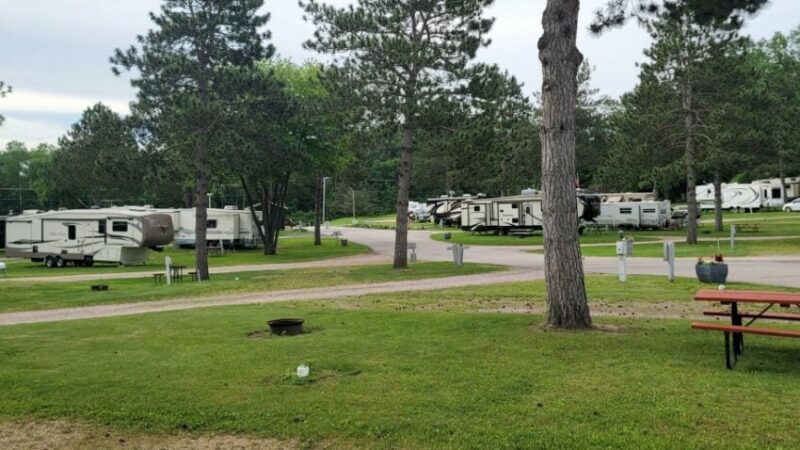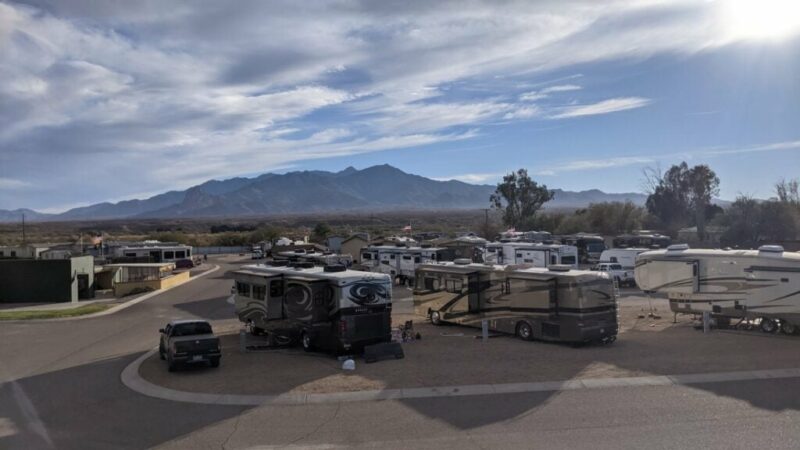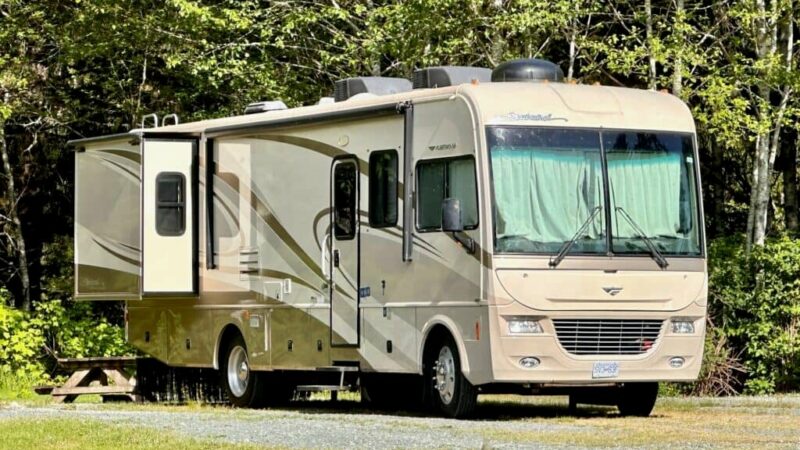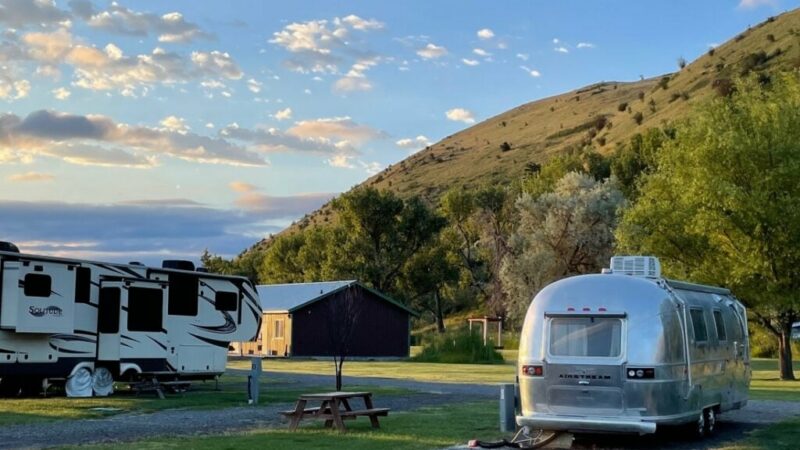Potentially Dangerous Mistakes You Can Make As A New RVer
Beginner RV Mistakes To Avoid At All Costs
The camping world is full of seasoned RVers and new RVers alike. It’s easy to get lost in the jargon, especially when everybody else already seems to know what they’re doing. Unfortunately, this means that new RVers may be unaware of potential dangers that experienced travelers already know to avoid.
If you’re new to this lifestyle, don’t worry! Everybody starts somewhere, and there’s always more to learn. An RV is a complex system that requires special care and management. Those who are just starting out need basic guidelines to keep themselves and their vehicle safe.
We’re here to help you out. Follow the tips below to avoid dangerous mistakes during your first few trips. It might seem overwhelming at first, but soon all of these habits will become second nature!
Mistake 1: No driving practice
If you’re a confident driver, you might think that RV driving will be easy. Although most people can pick it up quickly, there is a learning curve! Don’t just hop into your new rig and immediately take off. Take time to practice driving so you’ll know how the new vehicle will respond.
New RVers should practice making turns, accelerating, braking, and parking. There are courses you can take if you want professional help with this process. You should also know your vehicle’s measurements and weight so you don’t run into issues with bridges, tunnels, or overpasses.
Mistake 2: Overpacking
Overpacking is common among new RVers. When you see all the storage space in your camper, it’s tempting to load it up with all kinds of gear. Although most models can carry a fair amount of weight, there is a limit. Look up your RV’s gross vehicle weight rating (GVWR) and weigh it to ensure you’re not going over the limit.
Overpacked vehicles are dangerous to drive. The weight puts unnecessary strain on your tow vehicle, as well as the RV tires and frame. If the weight is unevenly distributed, you might experience dipping and swaying on uneven roads.
Mistake 3: Speeding
Speeding is another habit that many new RVers struggle to break. When you drive a regular car, you may be used to driving 5-10 miles over the speed limit, especially on highways. Those days will be over as soon as you get behind the wheel of an RV.
From now on, you’ll need to obey the speed limits and potentially go even slower. If there are posted recommendations for semi-trucks, you may need to follow those rules. Speeding in an RV can be deadly because you cannot quickly swerve or stop when problems arise.
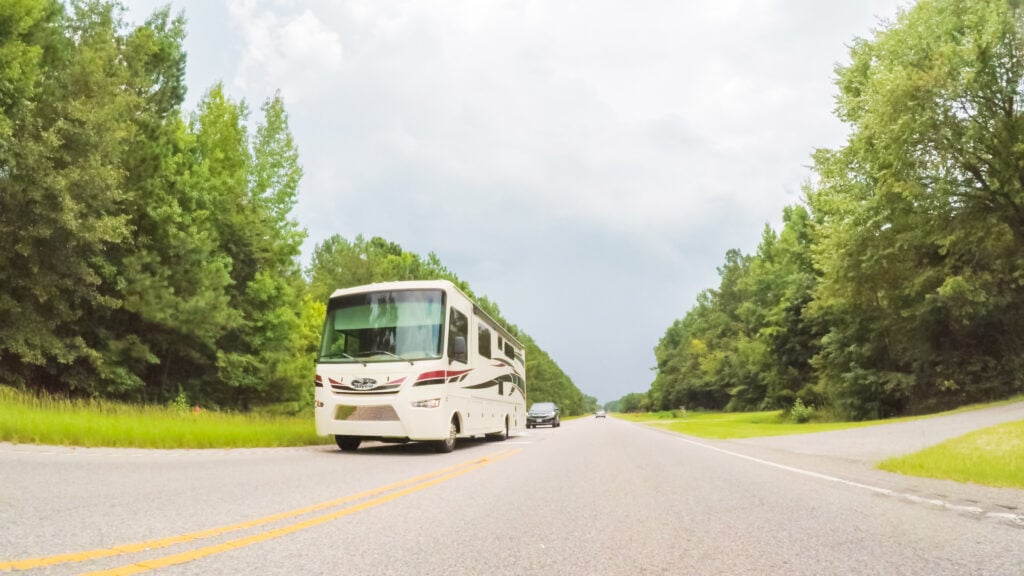
Mistake 4: Improper tire maintenance
Speaking of driving, keep a close eye on your RV tires. Blowouts are extremely dangerous to yourself, your passengers, and everybody else on the road. RV tires carry a lot of weight, so they may wear out faster than you’re used to.
Use a tire pressure monitoring system to check the pressure of each tire. Replace leaky and worn-out tires as soon as possible. Regular rotation and realignment can also help your equipment last longer.
In addition, make sure you keep track of all your RV maintenance with an online tool such as RV LIFE Maintenance. Not only can you keep all of your documents in one place, but you’ll also receive timely reminders when maintenance is due to help you avoid costly repairs and potentially serious accidents.
Mistake 5: Leaving the black tank open
One of the biggest benefits of RV camping is the plumbing system. No matter where you are, you’ll have access to fresh water, as well as a functional waste system. However, it may take a while to get used to how everything works.
For instance, new RVers sometimes make the mistake of leaving the black tank open. When you do this, you run the risk of sewage water backing up and flooding. You’ll also expose your RV to nasty (and potentially dangerous) sewage smells.
Close the black tank after every use and regularly dump your holding tanks. This will prevent problems in the future.
Mistake 6: Ignoring fire hazards
Fires are one of the worst things that can happen in an RV. Fire can destroy your belongings, ruin the interior, and sometimes destroy the whole vehicle! That’s why it’s important to be vigilant about fire prevention.
For starters, ensure that you have functional smoke alarms throughout the interior. A fire extinguisher can help you stop flames from spreading as well. You should also practice fire safety protocols, such as parking away from campfires and monitoring your propane tank pressure.
Mistake 7: Leaving your awning loose
Everyone loves awnings and the shade they provide. But sometimes, these fixtures can cause serious problems on the road. If your awning unfurls on the road, it can swing out and break free from the vehicle. This is a potentially deadly situation that you should avoid at all costs.
Make sure you properly store and lock your awning before you hit the road. Awning locks are easy to purchase and install, and they prevent this piece from coming loose during travel.
Mistake 8: Hooking up to a regular outlet
RV hookups are sometimes difficult to come by, especially if you’re staying in a residential area. When you visit friends or family, you might consider hooking your RV up to their house. It seems like an easy way to access electricity, right?
Wrong! You should never connect your RV to a regular outlet unless you have the proper conversion tools. Even then, it’s a risk. Standard outlets aren’t powerful enough to withstand the connection, and you could end up blowing out the power for the whole house.
Mistake 9: Traveling without tools or emergency supplies
The RV lifestyle is full of surprises, some good and some bad. If you run into a problem on the road, it’s important to have some basic tools to fix the issue. In some cases, you’ll still need professional help, but it never hurts to keep tools and emergency supplies in your camper.
Every new RVer should travel with first aid supplies, a 72-hour kit, jumper cables, a set of tools, and towing chains/cables. These necessities can help you get out of all kinds of trouble or at least stabilize the situation until help arrives.
Mistake 10: No reservations
When you look at all the RV parks and campgrounds across the country, it’s easy to assume that there will always be room for you. However, this isn’t the case! Lots of campgrounds require reservations, and they fill up much faster than you might think.
If you don’t call ahead, you might get stuck in a Walmart parking lot for the night. This is annoying, plus it’s dangerous to wander a new area without a clear plan.
Mistake 11: Leaving your RV unprotected
RVs are expensive vehicles that contain all kinds of valuable items. And yet, some new RVers leave their campers unlocked and unprotected! You should never assume that you’re parked in a safe place, regardless of whether you’re in a crowded city or out in the wilderness.
Both humans and animals might attempt to enter an unsecured RV. In order to protect yourself and your belongings, make sure you always lock the vehicle and install a security system.
Mistake 12: Hasty campsite departure
When you’re running behind schedule, it’s tempting to rush out of a campsite. However, this can lead to terrible consequences. Make a habit of walking around your RV and inspecting various elements before you depart.
You may want to create a checklist that includes things like:
- Remove chocks
- Disconnect from hookups
- Close windows
- Check for forgotten belongings
- Lock awning
Mistake 13: Driving without a plan
Finally, you should always make a plan before you head out on an RV adventure. Use a trip planner like RV LIFE Trip Wizard to find RV-safe routes, map out your pitstops, and learn more about the areas you’re visiting.
Of course, some remote campgrounds don’t have internet or cell phone service. As a backup, you should always bring paper maps so you’ll never be completely lost.
Related articles:
- 6 Tips Of Travel Trailer Advice For Newbies
- How To Avoid Dangerous Travel Conditions In Your RV
- The 14 Worst RV Mistakes You Can Make As A Beginner
The post Potentially Dangerous Mistakes You Can Make As A New RVer appeared first on RV LIFE.



